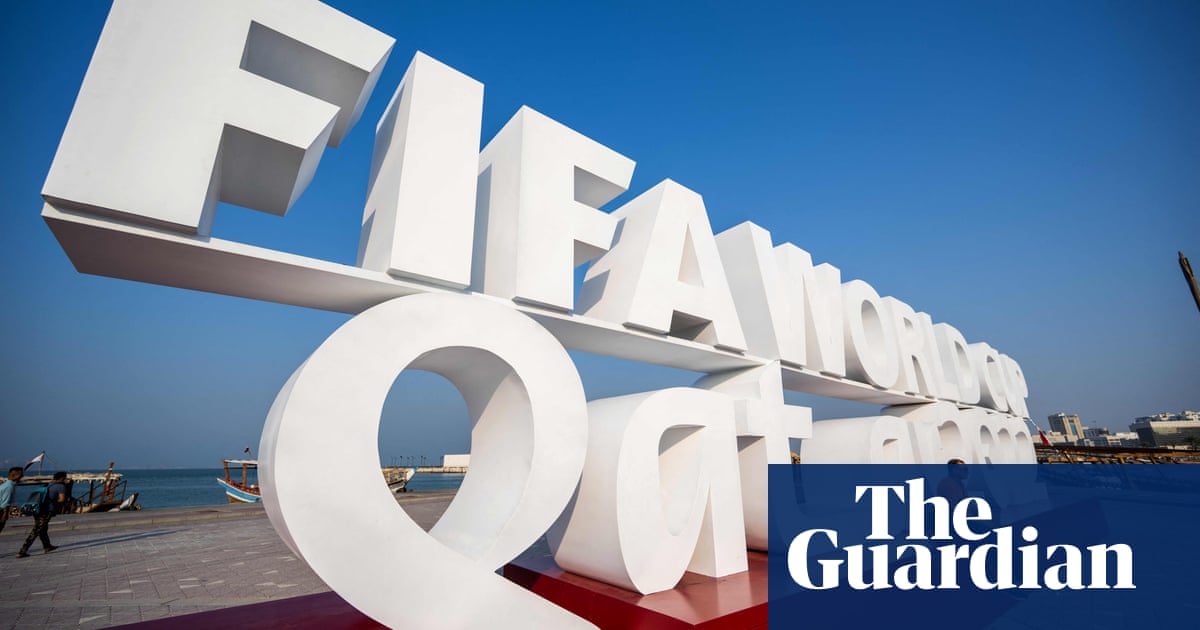
Fifa is not fit to govern and should be the subject of widespread reform, a new report has argued, starting with the way money is used to “buy the political support of member associations”.
The report, compiled by the human rights advocacy group FairSquare and built on interviews with more than 100 people, calls for greater transparency from football’s governing body and argues outside regulation may be necessary for the organisation to live up to its values.
“Football is far too socially, politically and economically important to be governed this poorly,” said Nick McGeehan, the FairSquare director and lead author of the report. “Only external regulation will provide the foundations for Fifa to deliver on football’s transformative potential and to prevent the organisation from causing more serious harm.”
The report argues that Fifa’s governance issues – where it is subject to legal action from players’ unions and under attack from human rights organisations – can be traced to the way funds are distributed to member associations.
The Fifa Forward programme, its latest mechanism for sharing funds, distributed $2.79bn (£2.14bn) to member associations and confederations between 2016 and 2022, according to the report. But the funding is “problematic” because it does not distribute money based on need and does not publish information confirming the money has been spent on the purposes for which it has been allocated.
“Fifa does not appear to be exercising the requisite control over the money it is redistributing; on the contrary, it is pumping increasing amounts of money into its member associations without any apparent regard for their specific development needs,” the report argues. “It is hard to escape the conclusion that one of the primary functions of the [programme] is to buy the political support of member associations at the cost of the proper sustainable development of the game.”
The report argues that such mechanisms have long been a part of the way Fifa functions, but it argues that some aspects of governance have got worse since Gianni Infantino was elected as president in 2016 in the wake of a series of corruption scandals. The report argues that Fifa in the modern day “is characterised by misgovernance and a lack of transparency, and the power of its most senior and powerful officials is rooted in a model of patronage that disincentivises ethical conduct”.
The report argues that an “institutional separation” of funding from the rest of Fifa’s operations may be necessary to “break the patronage system”. It also calls for greater transparency on the nature and scale of redistribution, including “information to verify that the funds are being spent on the purpose to which they have been allocated”. It says there should be disclosure relating to Fifa’s 35 committees, a number greatly expanded under Infantino, including the remuneration given to their members. Finally, the report argues, Fifa should return to holding press conferences and regularly engage with the media.
“None of these basic measures are in place at present,” the report argues, going on to suggest that external regulation, perhaps by the EU, could force the necessary changes. “The potential benefits of effective external regulation, whether delivered via the EU or any other institution, are significant and far-reaching,” it says.
The report comes during a period of turbulence for sports governing bodies in general, and Fifa in particular. Fifa is the subject of legal action from players’ unions and national leagues owing to concerns over fixture congestion and appears to have stepped back from some of its signature commitments – especially on human rights. The outcome of a report investigating the need for financial remedy for migrant workers in Qatar has still yet to be made public nearly a year after it was finished, and various stakeholders – including officials who previously worked on Fifa reforms – have expressed concern with a lack of consultation regarding Saudi Arabia’s bid to host the 2034 tournament.
“Fifa is a commercial rights holder, a development organisation, a competition organiser and a global regulator, all rolled into one big mess,” said McGeehan. “Commercially, it’s a hugely successful organisation, but it has been grossly negligent in addressing the eye-watering list of human rights abuses linked to its operations, and from the perspective of the development of the game, most notably the development of the women’s game, it appears to be irredeemably dysfunctional.”
FairSquare outlined the contents of the report to Fifa and made submissions for information but said it received no correspondence in return. The Guardian has approached Fifa for comment.

